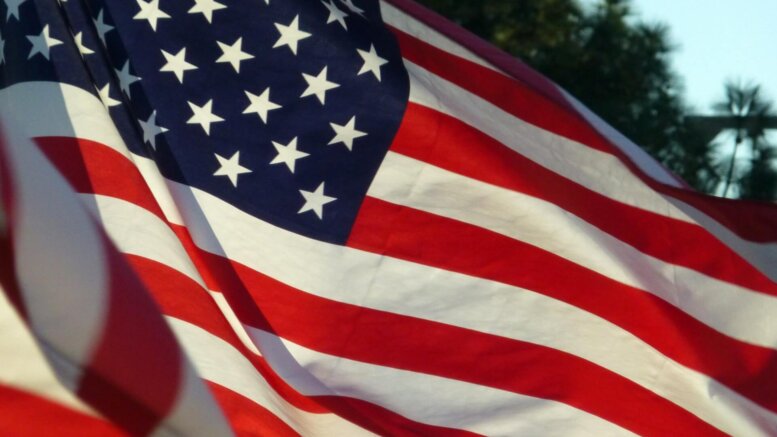“It’s not just fireworks and freedom—it’s a summons to remember our God-given rights and moral responsibility.”
As grills fire up and parades march down hometown streets, Americans celebrate the birth of our nation. But how many reflect on the deeper meaning behind the fireworks? July 4th was never meant to be a holiday of nostalgia alone. For John Quincy Adams—and the founders he revered—it was a day of remembrance and recommitment to enduring principles rooted in divine truth.
Adams’ Independence Day speeches are rarely studied today, but they powerfully illuminate what the Declaration of Independence was truly declaring. It wasn’t just a breakup with Britain. It was a bold statement of theological, philosophical, and political conviction—one that declared America as a nation under God, not just under government.
A Nation’s Founding: Not Just Political, But Providential
Dr. Matthew Spalding of Hillsdale College reminds us in this July 4th lecture that Adams saw America’s birth as divinely orchestrated and its liberty rooted in God’s moral order. Drawing from speeches Adams gave in the early 19th century, Spalding helps us rediscover the soul of the Declaration: national sovereignty, individual rights, and civic virtue—each grounded in “the laws of nature and nature’s God.”
The Declaration Begins with God—and Ends with Responsibility
The very first paragraph of the Declaration invokes “the laws of nature and nature’s God,” emphasizing that both nations and individuals derive their rights from a divine Creator—not kings, not Congress, and certainly not cultural whims. Thomas Jefferson’s iconic phrase—“We hold these truths to be self-evident”—was not just a rhetorical flourish. As Spalding notes, the use of “we hold” signifies a shared moral conviction rooted in theological and philosophical education.
John Quincy Adams taught that independence meant more than freedom from tyranny. It meant aligning governance with virtue and viewing happiness not as personal pleasure, but as the fruit of moral discipline and godliness. Quoting Aristotle, Locke, and the Scriptures, Adams believed the pursuit of happiness was ultimately the pursuit of virtue—a concept as alien to today’s political discourse as it was foundational to our republic.
Civic Education and Biblical Virtue: America’s True Safeguard
Our modern understanding of freedom often collapses into personal autonomy and self-gratification. But Adams warned against such distortions. Without virtue, freedom cannot stand. Without civic and theological education, the principles of liberty dissolve into license.
So how do we honor our Independence Day rightly?
-
By returning to the actual text of the Declaration and the Scriptures it echoes.
-
By educating our children in the “greatest texts” of Western and biblical civilization.
-
By remembering that freedom under God is the only freedom that lasts.
Final Warning and Call to Action
Let us not be the generation that forgets why America was founded. As cultural elites strip God from our institutions and redefine our founding documents through secular lenses, we must return to the original vision: a nation under God, pursuing virtue, and governed by moral law.
“The happiness of society is the end of government… and that happiness consists in virtue.” — John Quincy Adams, 1776


Great reminder of the essentials of freedom including it’s preeminence to our God and the precondition of virtue for the compact to be successful. How do we return to the original vision? Shaking our fists at the corrupt politicians, media and academia will leave us weary, frustrated and unfulfilled. The Framers gave us 1st Amendment petitions which were what Jefferson used in the DOI to cite specifically where the monarchy was violating the sovereigns rights. If we do a little work to learn what’s been hidden from us and petition the legislature starting in the counties we will restore the republic. Petitions against medical tyranny, the border invasion and CBDC’s are ready to be customized in each county. There are 15 others. www,Loudoun-Liberty.org
It’s worth noting that in spite of the false accusation that America was founded by racists the original DOI included the following petition accusing the monarchy of creating the slave trade then importing it here. Three of the original 13 states held out to prohibit abolition for 20 years. Rather than let them leave the other founding states negotiated the 2008 date fearing GA, SC, NC could be invaded by Spain from the south.
He has waged cruel war against human nature itself, violating it’s most sacred rights of life and liberty in the persons of a distant people who never offended him, captivating & carrying them into slavery in another hemisphere, or to incur miserable death in their transportation thither. This piratical warfare, the opprobium of INFIDEL Powers, is the warfare of the CHRISTIAN king of Great Britain. Determined to keep open a market where MEN should be bought & sold, he has prostituted his negative for suppressing every legislative attempt to prohibit or to restrain this execrable commerce. And that this assemblage of horrors might want no fact of distinguished die, he is now exciting those very people to rise in arms among us, and to purchase that liberty of which he has deprived them, by murdering the people on whom he also obtruded them: thus paying off former crimes committed against the LIBERTIES of one people, with crimes which he urges them to commit against the LIVES of another.